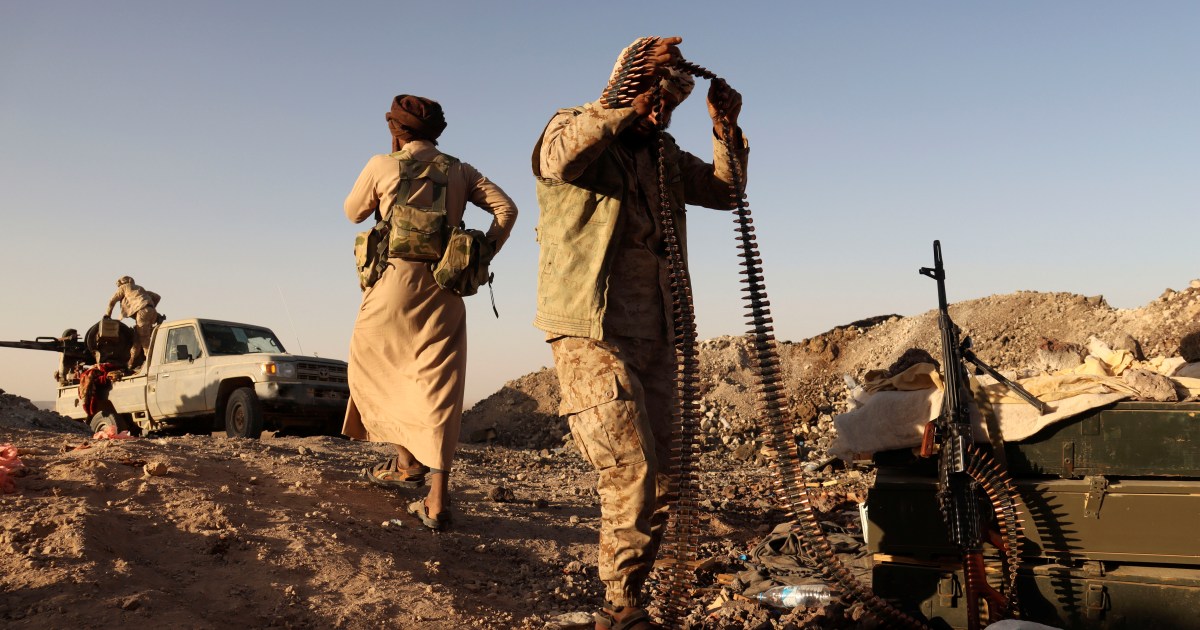The United States accused the Houthi group of refusing to engage in efforts to establish a ceasefire in Yemen, while the group held the UN Security Council responsible for the humanitarian catastrophe in the country.
In a statement published today, Friday, days after the return of US Special Envoy Timothy Lenderking from the region, the US State Department said that the Houthis bear great responsibility because of their refusal to engage meaningfully in a ceasefire and take steps to reach a solution to the nearly seven-year conflict, which has caused In unimaginable suffering, according to the text of the statement.
The ministry added that the Houthis are continuing what it described as their devastating attack on Ma'rib Governorate (northeast of Yemen), noting that the international community condemned this attack.
The US State Department also said that the Houthi attack on Ma'rib is leaving them increasingly isolated.
The US statement indicated that Lenderking discussed, during his recent tour of the region, the need to strengthen comprehensive processes that enable Yemenis to discuss the future of their country, and strengthen calls for peace.
On his recent tour of the region, US Special Envoy Timothy Lenderking held talks in Muscat and Riyadh, and his tour coincided with a similar tour of the UN envoy to Yemen, Martin Griffiths, who visited Sanaa and met Houthi leaders.
The tour of the US and UN envoys did not result in tangible progress towards a ceasefire in Yemen, amid mutual accusations about the party obstructing the settlement efforts made by several parties.
Recently, Washington said that it has a "fair initiative" for a ceasefire in Yemen, which is supported by the Saudi and Yemeni governments.
The Houthis require a ceasefire to stop what they describe as aggression and siege by the Saudi-Emirati coalition, and they stressed a few days ago the need to separate the humanitarian file from any military or political issues during the ongoing talks in an attempt to end the fighting and start negotiations that could lead to a political settlement.
Houthi criticism of the Security Council
On the other hand, the head of the Houthi political council, Muhammad Ali Al-Houthi, criticized the position of the UN Security Council and held it responsible for the humanitarian catastrophe in Yemen, amid UN warnings that millions of Yemenis are at risk of starvation.
In tweets on Twitter, Al-Houthi accused the Security Council of not criminalizing the countries of the Saudi-Emirati coalition in preventing the sale of oil stored in the Safer tanker.
The Houthi leader called on the Security Council to compel the United Nations to implement the signed agreement to avoid the catastrophe of the tanker leaking anchored years ago off the port of Hodeidah Governorate.
He pointed out that the coalition countries do not allow the implementation of the Safer Maintenance Agreement, and thus confirm the failure of the UN envoy to Yemen, Murat Griffiths, as he put it.
Muhammad Ali al-Houthi presented documents that he said were of a previous agreement signed by the United Nations on addressing the oil tanker problem, before retracting it.
This comes while the rotating president of the UN Security Council, Estonia's representative to the United Nations, Sven Jorgensen, said that the members of the Security Council stressed the need for an immediate solution to the outstanding issues in the ongoing talks on Yemen.
These Houthi members called for facilitating unconditional access and providing security for UN experts to conduct a comprehensive and impartial assessment of the status of the Safer oil tanker, in order to carry out the initial repair without further delay.

